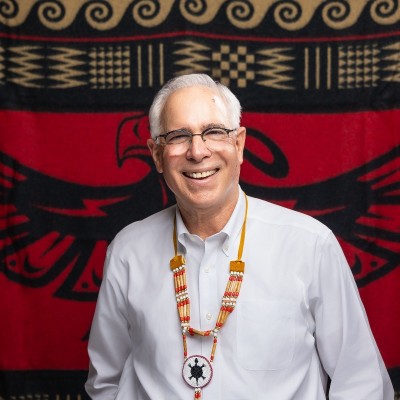

UW rheumatologists participate in Blackfeet Nation Arthritis & Rheumatic Diseases Conference
On September 12 – 13, the Blackfeet Nation held its first “Arthritis and Rheumatic Diseases Conference” at Blackfeet Community College (BCC) in Browning, Montana.
Funded by the Arthritis Foundation, the conference was led by BCC scientists, educators, students, and administrators, with support by UW faculty and fellows, including Dr. Jim Jarvis, professor (Pediatric Rheumatology), Dr. Grant Hughes, associate professor (Rheumatology), Dr. Haley Lynch, fellow (Pediatric Rheumatology), and Dr. Sarah Doaty, clinical instructor (UW Soldotna IM Residency).
The Blackfeet Indian Reservation sits just east of Glacier National Park and is home to the 17,321-member Blackfeet Nation, one of the 10 largest Indigenous Nations in the United States. Blackfeet Community College is located on the Blackfeet Reservation and is a part of a network of tribal colleges across the western states.
BCC and partner organizations initiated the conference to address the challenges of arthritis, systemic lupus erythematosus, and other rheumatic diseases in Indigenous communities.
Indigenous communities have some of the highest prevalence rates of rheumatoid arthritis in North America. For example, RA is up to five times more common in the Blackfeet Nation compared to the general US population. This appears to be true for other rheumatic diseases as well, Hughes said.
Higher risk of these conditions stems from a range of environmental factors connected to historical and ongoing trauma.
Research into this connection is conducted by Jarvis, a clinician and investigator specializing in Indigenous health and who has ancestry from the Mohawk Nation at Akwesasne and French Canada. His research is focused on how so-called epigenetic factors, stemming from historical traumas and cultural dislocation, may play a role in how rheumatic diseases are expressed in Indigenous children.
The two-day conference brought together students, faculty and community members to share and learn about rheumatic diseases, with special focus on the impact of ongoing and historical trauma, and community capacity-building in clinical care and research.
Hughes presented on rheumatoid arthritis, osteoarthritis, and gout, and Jarvis presented “Rheumatic Diseases and Historical Trauma”. Jarvis was also a panelist alongside community members for “Next Steps in Research and Clinical Care,” a panel discussion moderated by Hughes. The panel discussion highlighted research on the advantages of cultural interventions and discussing community-based clinical trials for treating and preventing arthritis and other rheumatic conditions.
Rheumatology faculty and fellows are actively involved in Indigenous health research and clinical care as well as providing educational and career support for the next generation of Indigenous physicians.
For more information, please visit the UW Medicine Center for Indigenous Health and UW Rheumatology websites.